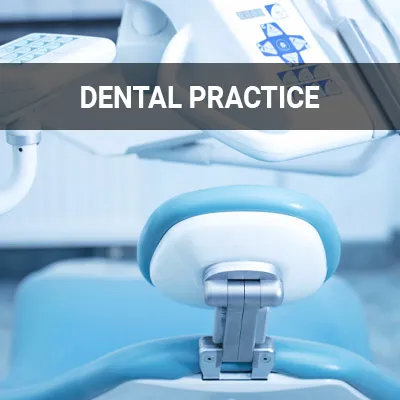Routine Dental Procedures Alpharetta, GA
Routine dental procedures are crucial to maintaining your overall health. They may be able to prevent any damage to your gums and teeth. You should see a dentist for routine dental procedures at least twice a year.
Routine dental procedures are available at Windward Parkway Dentistry in Alpharetta and the surrounding area. We may be able to help you establish and maintain a dental care routine. Call us today at (770) 814-6224 to learn more and schedule an appointment.
Importance of Routine Dental Procedures
Biannual routine dental visits generally cover an oral examination and professional teeth cleaning. The dental examination involves assessing the mouth for cavities, plaque, and tartar, before examining the gums. We check the gums using a special tool called a probe to measure the pocket depths between each tooth and the gums. This helps us screen for gum or periodontal disease and assess the overall oral health of the patient. During routine visits, we can also suggest supplemental treatments such as fluoride and sealants to enhance a patient's oral health.
Teeth Cleanings
Plaque is the sticky material that clings onto the tooth's surface, and it cannot be removed by brushing or flossing. Plaque is the most common cause of cavities and tooth decay with bacteria that eats away at and deteriorates enamel. Professional teeth cleanings thoroughly remove plaque and tartar, keeping the teeth and oral cavity clean and healthy.
“Professional teeth cleanings thoroughly remove plaque and tartar, keeping the teeth and oral cavity clean and healthy.”
Deep Cleaning
Deep cleanings, also known as scaling and root planing, go one step further by addressing anything below the gumline. This procedure has the potential to treat gum disease. When not properly removed, the bacteria in plaque can inflame your gums and cause your gums to pull away from your teeth.
Consequently, the gums may form "pockets" that trap more plaque. This is dangerous because it could lead to bone and tooth loss. Deep cleaning is effective during the early stages of gum disease when the structures below the gum line have not yet been damaged. If the condition is more advanced, then more intensive treatments may be necessary.
“Deep cleanings, also known as scaling and root planing, go one step further by addressing what is below the gumline.”
Fluoride Treatments
Fluoride is a natural tooth-supporting mineral that strengthens teeth, helps prevent cavities, and fights harmful bacteria. It protects gums and tooth enamel. Professional fluoride treatments provide patients with concentrated solutions that are much stronger than over-the-counter solutions.
The American Dental Association recommends that patients receive professional fluoride treatments every three, six, or 12 months, depending on the patient's oral health. Certain groups may be at increased risk for cavities and require more frequent fluoride treatments. These include those who do not seek regular, recommended professional dental care, use drugs or alcohol frequently, have poor oral hygiene, have a poor diet, or have weak enamel.
“Professional fluoride treatments provide patients with concentrated solutions that are much stronger than over-the-counter solutions.”
Check out what others are saying about our dental services on Yelp: Routine Dental Procedures in Alpharetta, GA
Dental Sealants & Basic Teeth Whitening
Dental sealants work to prevent tooth decay, usually on the back teeth (or the premolars and molars). When a dentist administers dental sealants, they paint a thin, plastic coating (the sealant) on the chewing surfaces of a patient's teeth. The sealant then bonds into the teeth's depressions and grooves to protect the enamel. While brushing and flossing can clean the surface areas of the teeth, they are often insufficient in removing food and plaque from more vulnerable areas, like the nooks and crannies. Sealants work to close these areas off, making them especially valuable for those who already have or are susceptible to tooth decay. Additionally, adults without tooth decay or those who have fillings may benefit.
Those looking to improve the appearance of their teeth may want to consider basic teeth whitening. Though there are many teeth whitening products available over-the-counter, the most effective options are provided at the dentist's office. These products are medical-grade, meaning they are more concentrated and can achieve better results. In-office whitening can achieve results eight times greater than whitening toothpaste. Generally speaking, this procedure is best suited for patients who have healthy teeth and gums and no fillings. However, our team may be able to help patients determine their best options even if they do not meet these criteria.
“Sealants work to close these areas off, making them especially valuable for those who already have or are susceptible to tooth decay.”
Questions Answered on This Page
Q. What happens during a deep teeth cleaning?
Q. What do dental sealants do?
Q. What is the importance of routine dental procedures?
People Also Ask
Q. What is restorative dentistry?
Q. Why might I need dental crowns, dental bridges, or root canals?
Q. Why is preventative care important?
Q. What is the power of dentist-provided fluoride?
Q. What is the importance of having a routine dental checkup?
Dental Bonding and Crowns
Dental bonding is a routine procedure that involves bonding a composite material to the teeth for restoration purposes. We apply a tooth-colored composite resin material to the teeth, adding natural-looking grooves and texture before "bonding" it with a special light. This procedure is primarily done for patients with chipped, cracked, or decayed teeth and helps enhance the appearance while preserving the tooth's function. There are various other conditions that we can treat through dental bonding, and we may discuss these possibilities with a patient during a routine dental visit.
Dental crowns are tooth-colored caps that cover a patient's tooth, typically when the tooth has been compromised due to extensive decay. They are most commonly used after a root canal or extraction procedure to act as a natural tooth. Crowns help prevent the spread of bacteria and decay to surrounding teeth, gums, and bone. We will likely discuss a crown placement in cases of a root canal, extraction, or implant procedure.
“Dental crowns are tooth-colored caps that cover a patient’s tooth, typically when the tooth has been compromised due to extensive decay.”
Frequently Asked Questions
Q. What happens after a deep cleaning?
A. It is common for patients to feel some soreness in the gums and teeth after a deep cleaning as a result of the tools and pressure put on them. We recommend avoiding any food or drink for a few hours after the procedure and use a special rinse for the first few days. Tenderness should dissipate within the first few hours.
Q. How often should I get routine dental procedures done?
A. Every routine dental procedure differs in its duration and dosage depending on the patient's age and case. For instance, routine cleanings are recommended for all patients every six months, while deep cleanings can be done every few years. During a patient's first visit, we curate a custom treatment plan that entails all of the patient's recommended and required treatments and their durations, which are subject to change.
Q. Which procedures require anesthesia?
A. Topical or local anesthesia is generally administered in one area of the mouth when using dental tools or drills to provide painless treatment. This can be for fillings, root canals, and deep cleanings. General anesthesia, or sedation, is used for more extensive procedures such as extractions, which are not routinely performed.
Q. Can anybody request routine procedures such as teeth whitening or sealants?
A. Typically, we would recommend procedures such as teeth whitening, dental bonding, sealants, and crowns. In some cases, we find signs of progressing decay that may require a procedure. A patient may also request a procedure, and we can conduct a proper examination to determine whether that would be appropriate.
Q. How long do dental sealants and crowns last?
A. Sealants and crowns are both artificial materials that are subject to wear and tear. Dental sealants can last up to 9 years with proper care and maintenance, and crowns can last up to 15 years. These materials have been refined many times to be as durable as they are today, but they require adequate and thorough cleaning to properly maintain them.
Dental Terminology
Call Us Today
Keeping up with your routine dental treatments may prevent any serious issues before they happen. We at Windward Parkway Dentistry may be able to help. Call us today at 770-814-6224 to learn more and schedule an appointment.
Helpful Related Links
- American Dental Association (ADA). Glossary of Dental Clinical Terms. 2024
- American Academy of Cosmetic Dentistry® (AACD). Home Page. 2024
- WebMD. WebMD’s Oral Care Guide. 2024
- We accept the following payment methods: Cash, Check, Discover, MasterCard, and Visa
- We serve patients from the following counties: Fulton County
- We serve patients from the following cities: Alpharetta, Bethany Crossing, Herring Township, and Milton
- Norton Safe Web. View Details
- Trend Micro Site Safety Center. View Details
About our business and website security
Back to top of Routine Dental Procedures











